
Hi, I’m a personal finance expert who loves to help you out! I’ll answer your question within a business day. Pinky swear.

It’s the two words you least want to see when you apply for a credit card. Application declined. So, what happens next?
While you might be tempted to immediately go online and submit an application for another credit card, that’s probably not the best idea. Whenever your credit card application is declined, each rejection will be noted on your credit report. So, if you apply for another credit card shortly after a rejection, it may increase the likelihood of you being declined again.
Instead, it may be a better idea to find out why your application was declined. From there, you can work on improving your chances of getting approved the next time you apply. Let’s go over the various reasons why your application may have been declined, and the changes you can make to reduce the chances of it happening again.

Reasons Why Your Application May Have Been Declined
There are many reasons why credit card providers may choose to reject an applicant:
You provided incorrect information on your application
Filling out forms can be tedious and time-consuming. It can be all too easy to rush through them just to get them finished. If you’re not careful though, you can make errors that could lead to the rejection of your application.
Why? Card providers have to authenticate the information you provide in order to move forward with your application. If details like your residential address or driver’s license number are incorrect and can’t be verified, the card provider may have no choice but to decline your application.
Is it possible to amend errors after applying? In some cases, yes, it may be possible to correct the information to allow the card provider to proceed with the application. Not always though.
There have been recent changes to your circumstances
If your circumstances have changed recently, for example, you’ve moved house or changed jobs, you may not have had the chance to update this information across all your networks. Again, the problem here comes down to the card provider not being able to verify the information you provided.
As with making mistakes on your application, you may be able to rectify this problem by providing additional documentation to the card provider.
You’re not old enough to apply
To apply for a credit card in Australia, you must be at least 18 years old. So, if you are under the age of 18, your credit card application will be declined.
You don’t meet citizenship or residency requirements
While there are some credit cards that allow temporary residents holding certain types of visas to apply, for the most part, card providers require applicants to be an Australian citizen or permanent resident. If you don’t meet the residency requirements of the card you are applying for, you won’t be approved for the card.

You don’t earn enough
Most credit cards have a minimum income requirement. Failure to meet this requirement will result in the rejection of your application. At a minimum, this income threshold is set at $15,000 per year. However, some cards require applicants to have significantly higher annual earnings. For premium card applications, you might be expected to have an annual income of $75,000 or even $150,000.
It’s also worth looking at what the card provider classes as ‘income’. In some cases, income doesn’t have to solely come from a regular paycheck. You may find that some card providers accept other forms of income to fulfill their minimum income criteria, while others do not.
Your employment situation does not meet the requirements
When assessing each credit card application, the card provider has to weigh up how much of a risk the applicant will be. The card provider needs to know the applicant will be able to repay any spending made using the card – and employment plays an important role in this assessment.
If you hold a secure, long-term, full-time job, you are likely considered a low-risk applicant, indicating a greater chance of approval. On the other hand, if your employment is casual, temporary, part-time, or hard to verify for any reason, you may be deemed as a higher-risk applicant and approval would be harder to come by.
Your financial risk is too high
When you apply for a credit card, you have to provide details of not only your income but also your expenses. You will usually have to provide an estimate on how much you spend on your rent or mortgage, insurance, utilities and other bills, childcare, food, entertainment, and various other outgoings.
How much you owe on loans, such as personal loans and car loans, will also be taken into consideration. This includes any outstanding credit card balances you have. If your expenses exceed or take up a significant portion of your income, the card provider may conclude that you would struggle to repay your balance, resulting in the denial of your application.
You have bad credit
One of the most important factors used to determine the approval or denial of your application is your creditworthiness. By reviewing your credit history, the card provider can assess how responsible or irresponsible you’ve been with credit in the past.
A positive credit history indicates that you are likely to continue managing credit responsibly in the future. However, if you have bad credit, with late payments, defaults, or even bankruptcy on your credit report, you may be viewed as too risky to be approved for a credit card.

Making Changes To Improve Your Chances Of Approval
When your credit card application is declined, the card provider may or may not provide the reasoning behind the rejection. If they do not provide an explanation, you can choose to ask the card provider for details, which they may or may not do. Not very helpful, we know.
If the card provider does provide a reason for the declined application, you will then have a starting point for making necessary changes. If not though, you’ll need to work it out on your own. Look at the above reasons, and go through the card’s eligibility requirements carefully to find the most likely culprit.
From there, you can start working on making changes that will improve your chances of being approved the next time you apply.
Find the right fit
When you apply for a credit card, it needs to be as suited to you as you are
to it. While it’s easy to be swayed by introductory offers and enticing
extras, try to look beyond all that to find the card that matches your needs
and your circumstances.
A credit card with a low annual fee could work well for you if you want a
simple card that keeps costs down. With a
low or no annual fee,
this type of card can also work well for cardholders who don’t use their card
that often, or who only want to keep a credit card for emergencies.
A card with a
low interest rate
could be a good choice for cardholders who tend to carry a balance. While
they are typically basic in terms of the features they offer, they can help
cardholders save on interest, allowing them to pay off more of what they owe
as they keep their balance as low as possible month to month.
Low fee and low rate cards are typically easier to apply for, often with
lower minimum income requirements. Card providers will still look for
applicants with good credit history, however, who also meet the card’s
eligibility criteria.
Rewards cards
tend to suit cardholders with a larger monthly spend, who always pay off
their balance. Rewards programs range in style, with some of the best known
being frequent flyer programs such as Qantas.
Platinum
and
black cards
also tend to suit bigger spenders who clear their balance each month,
providing them with perks such as travel credit, airport lounge access, and
insurance covers. These cards typically offer higher credit limits and a
higher rewards earn rate.
Along with higher annual fees, rewards, and premium cards often have stricter
eligibility requirements. They may require applicants to have an excellent
credit history and a much higher annual income.
Want to compare your options? What better place than
CreditCard.com.au.

Checking Your EligibilityEach credit card has its own list of specific eligibility criteria that you must meet if you want to be approved. Here are some of the big ones to look out for as you compare cards and their eligibility requirements.
If you’re not sure what the eligibility requirements are for the card you want to apply for, you can contact the card provider for more details. If you don’t meet certain criteria, for example, if you’re self-employed, you may also ask the card provider if it’s possible to provide additional information to support your application and have it considered. |

Check your credit
Before you apply for a credit card, it’s a good idea to check your credit first. Credit providers place great importance on the information held within your credit report, and you should too. But how are you supposed to do that if you don’t know what your credit report says about you?
There are various ways you can access your credit report. You can request a copy of your credit report directly from any of the three major credit reporting agencies, or you can use a third party provider. When using a third party, consider how they will use your information, which credit reporting agency they use, and any costs involved.
What does your credit report say about you?When you access your credit report, it’s a good idea to know what to look for. First up, your credit score. Taking into account a number of factors, each credit reporting agency assigns you a credit score. This score goes up and down over time, according to how you deal with credit. Credit providers use this score to assess your creditworthiness, to then determine whether or not to approve your application. What is good credit and what is bad credit then? Each of Australia’s three major credit reporting agencies breaks it down differently.
Aside from your credit score, your credit report will also include other important information regarding your creditworthiness. Identification Information: This includes your name, date of birth, and address history, as well as your driver’s license number and employment history. Consumer Credit Information: This includes any credit enquiries you have made, as well as any credit accounts in your name, including your credit limit and your repayment history. Details will also be provided of any overdue accounts, such as defaults and serious credit infringements, and any public records information like court judgments, bankruptcy, debt agreements, and personal insolvency. Commercial Credit Information: This includes commercial credit enquiries made in your name, such as mobile phone contracts, business loans, or business credit cards. Overdue commercial credit accounts and other debts will also be detailed. |

Correct any errors
With your credit report in hand, you can review it for inaccuracies. If you identify any errors, you can request corrections from the relevant credit reporting agency. It’s a good idea to check your credit report with each of the three agencies, as each might have different information.
At this point, you may also want to take time to make sure all your information is up-to-date elsewhere. Ensure your employer has your correct personal information on file, and that everything is correct with the ATO and the government service department in your state or territory (for example Service NSW if you live in NSW). This step will make it easier to verify your identity.

Improve your credit
In Australia, credit reporting agencies use a system known as ‘comprehensive credit reporting’, which means that both negative and positive information is recorded on your credit report and used to calculate your credit score.
With that in mind, you can improve your credit score – and your chances of being approved for credit in the future – by making positive changes.
You can work on improving your credit score by:
✔ Paying your bills on time.
✔ Paying down loans and credit cards.
✔ Making your monthly repayments on time every month.
✔ Having a consistently low balance on your credit card.
✔ Holding onto ‘good’ credit accounts that you have had for some time and have always paid on time
✔ Not applying for new credit cards or loans
What will impede your efforts in improving your credit score?
✖ Making late payments on your credit cards or loans.
✖ Having bills or payments of at least $150 that are overdue by 60 days or more.
✖ Applying too often for credit cards or loans.
✖ Applying and being rejected for a credit card or loan.
✖ Getting a balance transfer credit card but not repaying the transferred balance within the introductory period.
✖ Applying for balance transfer cards one after the other.
What about checking your credit? While it’s often thought that checking your credit affects your credit score, it doesn’t. You can check your credit as often as you want without it negatively affecting your credit report or your credit score.

Reduce your risk
When a card provider assesses your application, risk is a big factor. A card provider doesn’t want to provide credit to someone who won’t be able to pay it back, after all. So, what is ‘risk’ in the eyes of a card provider?
Job stability and income play an important role here. If you have a stable job with a good income, you are deemed lower risk, as you are more likely to be able to repay your spending month to month.
What can increase risk, however, is debt – or even the potential for debt. Of course, if you have a home loan, car loan, or personal loan, you will know exactly how much your repayments on those loans will be each month. As long as your income comfortably covers that amount, the risk of providing more credit to you should be relatively low.
And credit cards? Instead of focussing on how much you owe on your credit cards, new card providers will look at how you could potentially owe. While you might never think of maxing out your credit cards, a potential card provider has to consider whether you could afford to cover those payments if you did – and whether adding a new card into the mix would be too much of a risk.
With that in mind, you can work on reducing your risk before applying for a credit card. Getting a better-paying job and sticking to it could help. As could paying down your loans and credit cards. You could also look at closing old credit card accounts you don’t need.
TIP: If you’ve held a credit card for a long time and consistently made repayments on time, consider reducing the credit limit instead of closing it.

An example of how you can use a balance transferGeorge decides to apply for a credit card to take advantage of its balance transfer offer. He wants to transfer the balance from three of his four existing cards onto the new balance transfer card. On card 1, his credit limit is $4,000 and his balance is $2,000. On card 2, his credit limit is $3,000 and his balance is $3,000. On card 3, his credit limit is $5,000 and his balance is $4,000. On card 4, his credit limit is $8,000 and his balance is $0. When he applies for the new card, he advises the card provider he wants to transfer $9,000. Unfortunately, George’s application is declined. The card provider determines George to be too high risk due to his overall available credit limit, and the fact that he has a personal loan he is currently paying off. Over the following nine months, George pays off his personal loan. He also pays off the balance of card 1 and closes it, while also closing card 4 to reduce his overall available credit limit. When he applies for another card, he makes sure he meets all eligibility requirements. This time, George is approved and transfers the balances from his existing cards to take advantage of a balance transfer offer. Over the introductory period, he pays his transferred balance down and clears his debt. |
Prepare yourself
Knowing what a potential card provider may need from you when you apply can also be a step in the right direction. That means having the correct supporting information and documentation ready. This could include:
- Identity documents (such as your passport or driver’s license)
- Proof of income (such as payslips and ATO tax assessments)
- Your employer’s name and contact details
- If you’re self-employed, you may need to provide your accountant’s information and previous ATO tax assessments
- Your residential address
- Your citizenship status (for example, citizen, permanent resident, long-term visa)
- Contact details (including phone number and email address)
- The current balance of your savings and transactions accounts
- The current balance of other credit cards and debts in your name
- Proof of your current credit card balance if you’re applying for a balance transfer
- Your monthly expenses (including rent, mortgage, groceries, fuel or public transport, utilities, insurance, and more)

An example of building your credit scoreCharlotte applies for her first credit card at the age of 21, having just finished university. She has held casual jobs since she was 17 and is currently working part-time at a fast food restaurant until she finds the right role within her field of study. While she makes the minimum income requirement for the card, she has only been in her current job for a few months. Charlotte’s application is declined. The next month, she finds the perfect job with a good salary. She gets a contract for a new phone and makes sure she pays the bill on time every month. Twelve months later, she applies for a low-cost card with eligibility requirements that she now meets. The card provider considers her steady job and good income, and the fact that she has built her credit with her phone contract while applying for any other forms of credit, and decides to approve her application, granting her a credit card with a low credit limit. Charlotte can now use her credit card to build her credit over time. By avoiding overspending, and by consistently paying her monthly balance before the due date, her credit should improve so that it becomes easier for her to apply for additional credit when needed. |

How Long Should You Wait To Apply Again?
There’s no hard and fast rule regarding how long you should wait to apply for another credit card after having an application rejected. However, it’s worth remembering that every time you apply for credit and your application is declined, it is recorded in your credit report.
If you apply again straight away, the new card provider will see the previous denial and might consider you too risky for approval. Why? It’s not just the fact that another credit provider turned down your application, but also the quick reapplication, which could imply you are desperate for credit.
Instead, it’s usually a good idea to wait at least six months before applying again. Although, if your situation remains unchanged when you first applied, you may find your application is rejected again. Especially if you apply for the same card.
Are There Any Alternatives In The Meantime?
If you need to use plastic but have to wait to reapply for a credit card, what can you use in the meantime? If you have another credit card, you can use that if it won’t hurt your credit or your financial situation to do so.
Alternatively, you could use a prepaid credit card or a debit card, or if you’re traveling overseas, you could opt for a card pre-loaded with the currency you need.

Getting It Right, Second Time Around
So, you’ve waited, you’ve improved your credit, and you’ve rectified all the issues that caused your application to be declined. Now, it’s time to apply again. What do you need to think about as you apply?
Compare, compare, compare! Use CreditCard.com.au to compare credit cards and find one that suits your needs and your eligibility. Be sure to read the small print to make sure of your compatibility with the card before you apply, and check with the card provider if you’re unsure what eligibility criteria is in place.
Own bank or new provider? There are advantages to applying for a credit card with your own bank, especially if you have a good, long-standing relationship. However, you may find other options elsewhere that better meet your needs, so always compare what’s on offer elsewhere before applying.
Avoid applying for the same card over and over. It’s said the definition of insanity is doing the same thing over and over and expecting a different result. Instead of applying for the same card again and again, take a step back and find a more suitable option somewhere else.
Pay attention to your application. When you apply, you have to provide a heap of information. Don’t let a little slip-up cause you to receive another rejection letter. Be careful when entering each piece of information, and go back and check every detail before you hit apply.
Photo source: Pexels

Pauline Hatch
Pauline is a personal finance expert at CreditCard.com.au, with 9 years in money, budgeting and property reporting under her belt. Pauline is passionate about seeing Aussies win by making their money – and their credit cards – work smarter, harder and bigger.
You might be interested in
Recently Asked Questions
Something you need to know about this card? Ask our credit card expert a question.
Ask a question
Hi, I’m a personal finance expert who loves to help you out! I’ll answer your question within a business day. Pinky swear.




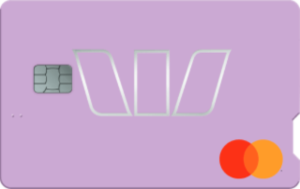
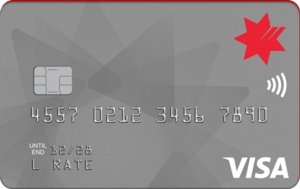
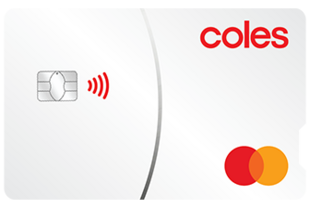
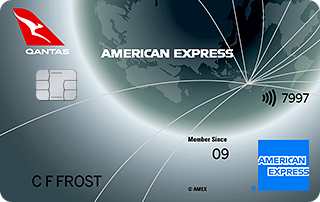
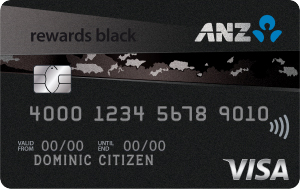
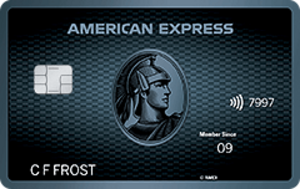







Milo
24 August 2024Pauline
28 August 2024Karen
1 July 2023Pauline
3 July 2023Terri Case
18 November 2022Pauline
21 November 2022Adam De Laurentis
6 December 2021Pauline
7 December 2021Kath
30 November 2021Pauline
1 December 2021Ren
6 September 2021Roland
7 September 2021Stacy
2 August 2021Roland
3 August 2021